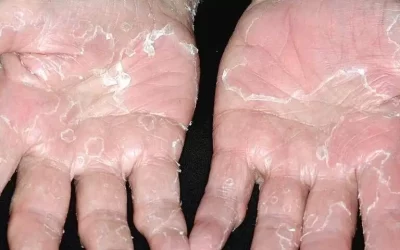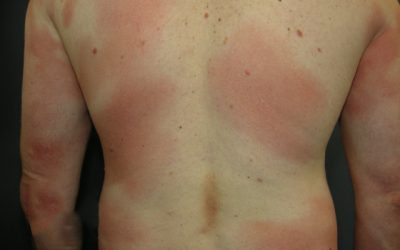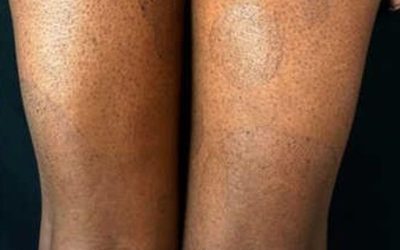Dishidrotic eczema
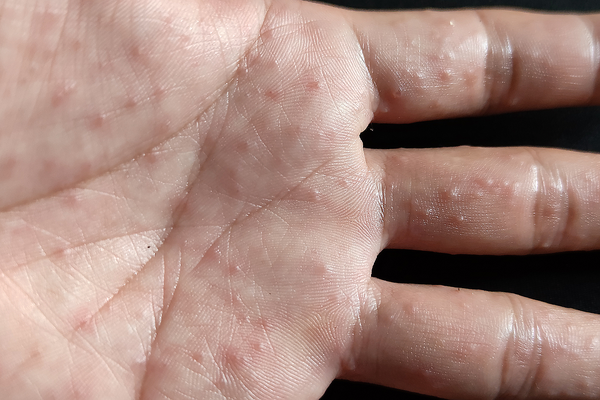
Dishidrotic eczema (syn. dishidrotic dermatitis, dishidrotic dermatitis, pompholyx) is a chronic, non-contagious inflammation of the skin affecting the hands and feet. The disease is more common in women and in patients with atopic dermatitis or contact allergies.
Clinical signs:
-
- characterised by an itchy rash with small subcutaneous vesicles
- a burning sensation may be felt at the site of the rash
- lesions on the skin of the hands, fingers, soles of the feet
- superficial wounds, skin fraying during healing
- the disease tends to recur
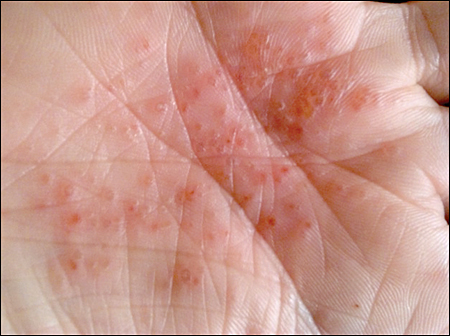
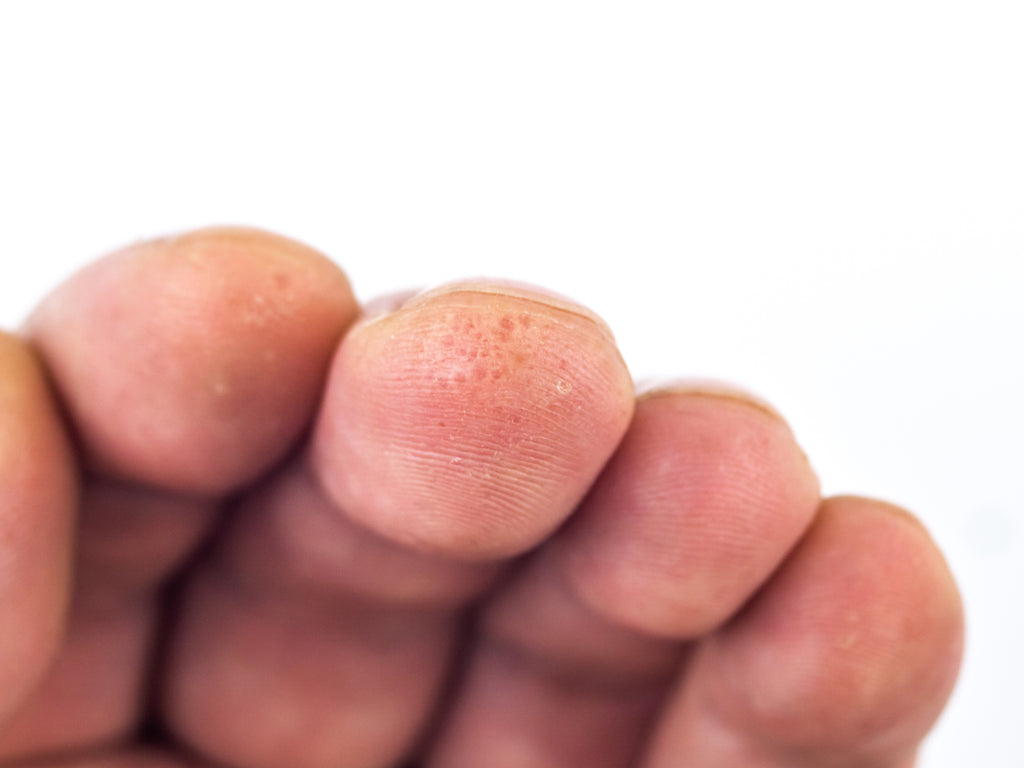
Risk factors:
-
- genetic predisposition
- increased sweating of the hands and feet
- humid environment, frequent contact with chemicals (e.g. hand washing, washing dishes or floors)
- sensitisation or allergy to environmental factors, most commonly nickel
- reaction to medicines
- emotional stress
Diagnostics
Diagnosis is based on characteristic clinical signs. If there is a suspicion that the rashes may be provoked by environmental substances or allergies, an allergen patch test is carried out and a doctor consultation with an allergist/clinical immunologist may be recommended.
If the diagnosis is in doubt, a biopsy of a skin graft may be performed.
Treatment
-
- Avoidance of factors that provoke rashes is recommended (humid environment, allergic substances if found)
- your doctor will assess the extent of the disease and choose topical preparations or a combination of oral medicines.
- phototherapy treatments may be prescribed
Prophylaxis to prevent recurrence of rashes:
-
- wearing cotton gloves and rubber gloves when working with wet hands
- reducing profuse sweating (proper choice of footwear made of natural materials, cotton socks, antiperspirants, botulinum injections, etc.)
- hand and foot creams to ensure good skin barrier properties

Peeling skin syndrome
Peeling skin syndrome is a genetic disorder characterized by constant peeling of the skin. The disease appears from birth or in the first year of life
lasts a lifetime
Mycosis Fungoides
The most common primary skin T-cell lymphoma (cancer of the blood). Mycosis Fungoides is characterized by three main stages, several of which may exist at the same time
Paraneoplastic dermatological manifestation of gastrointestinal malignancies
rare disorders resulting from the immune system’s response to a cancerous process (neoplasia) in the body. Gastrointestinal neoplasms more often cause paraneoplastic syndromes affecting the skin.
iDerma
MB iDerma
Fabijoniškės g. 99, Vilnius
+370 671 33323
info@iderma.lt

